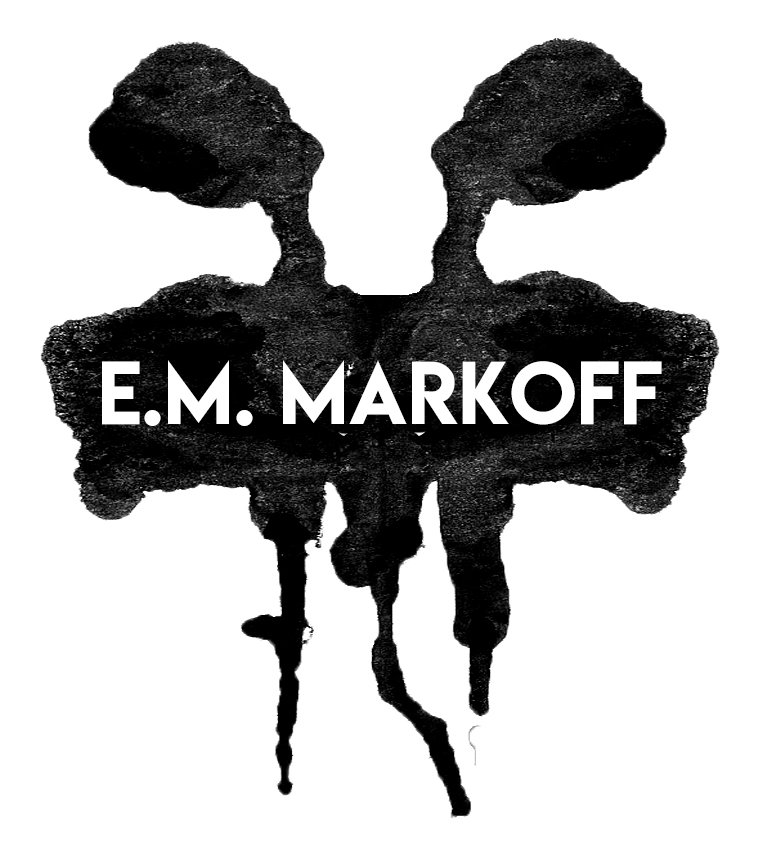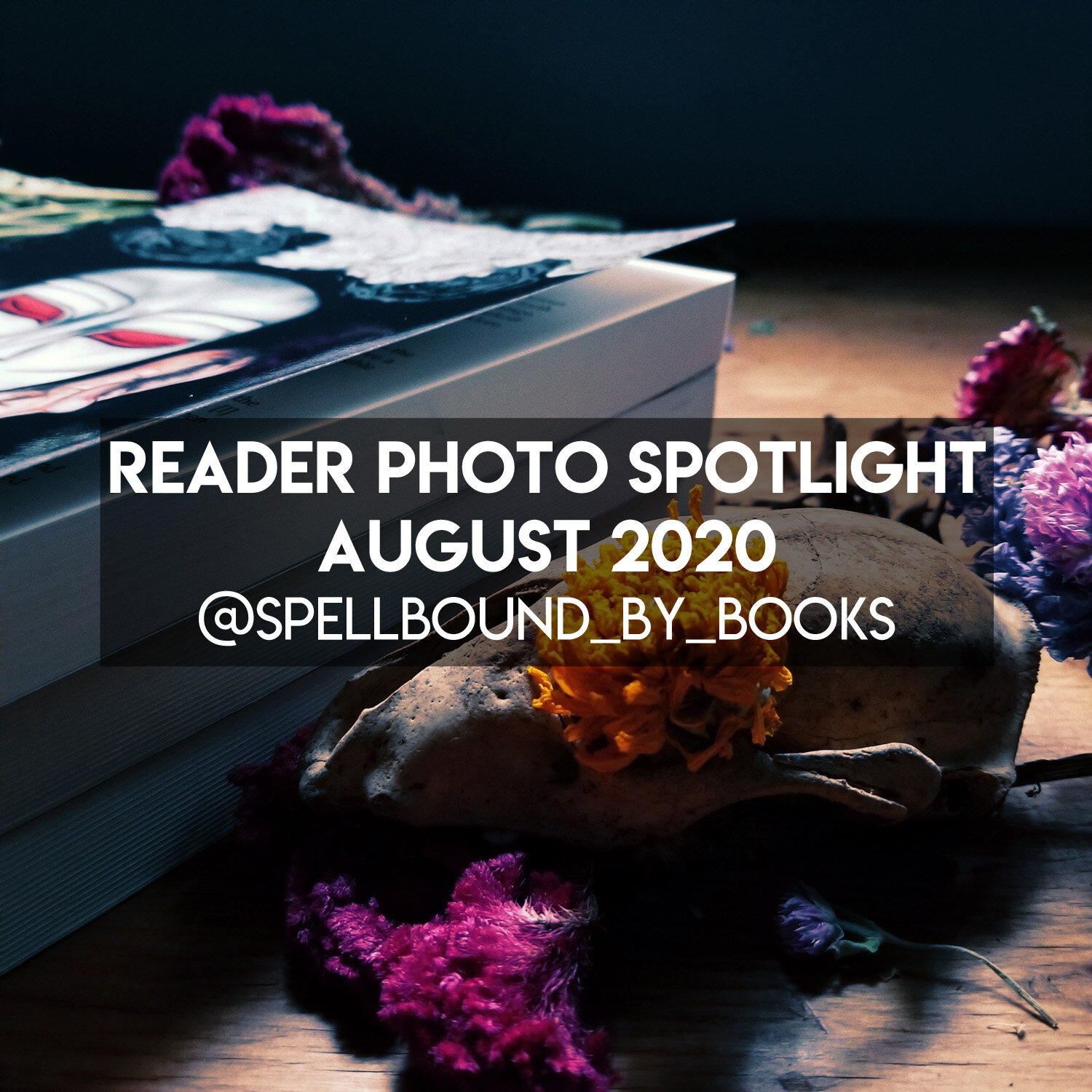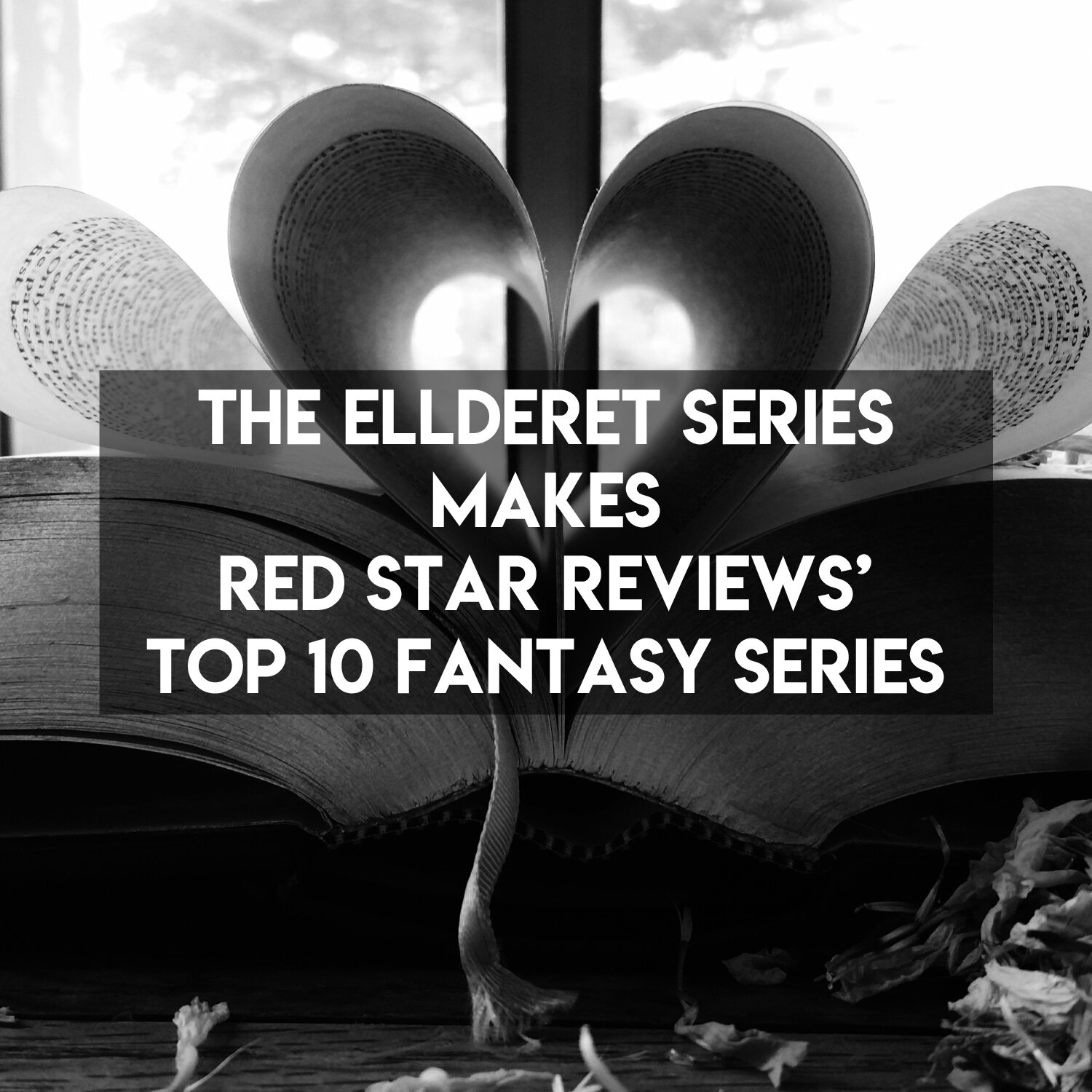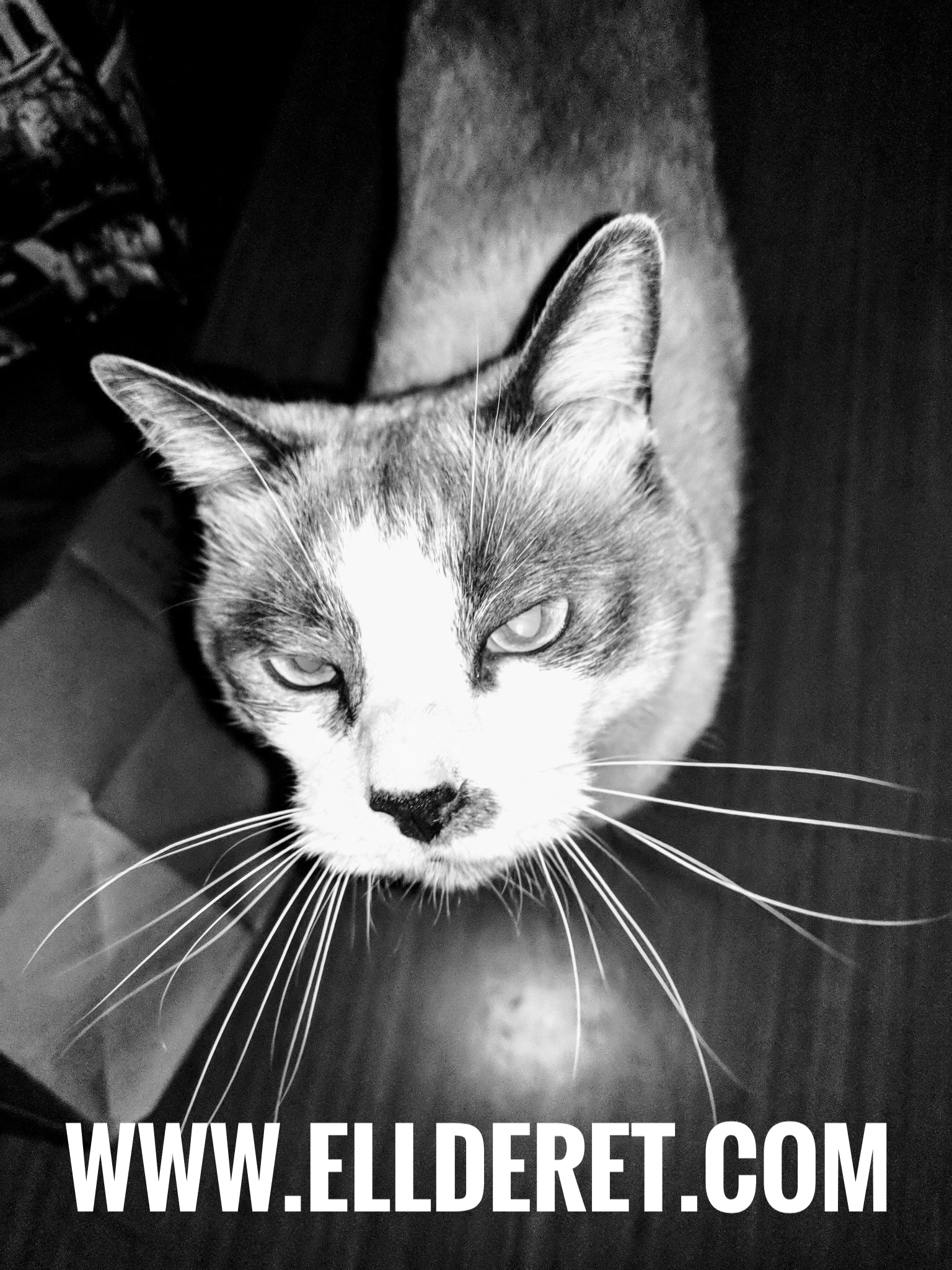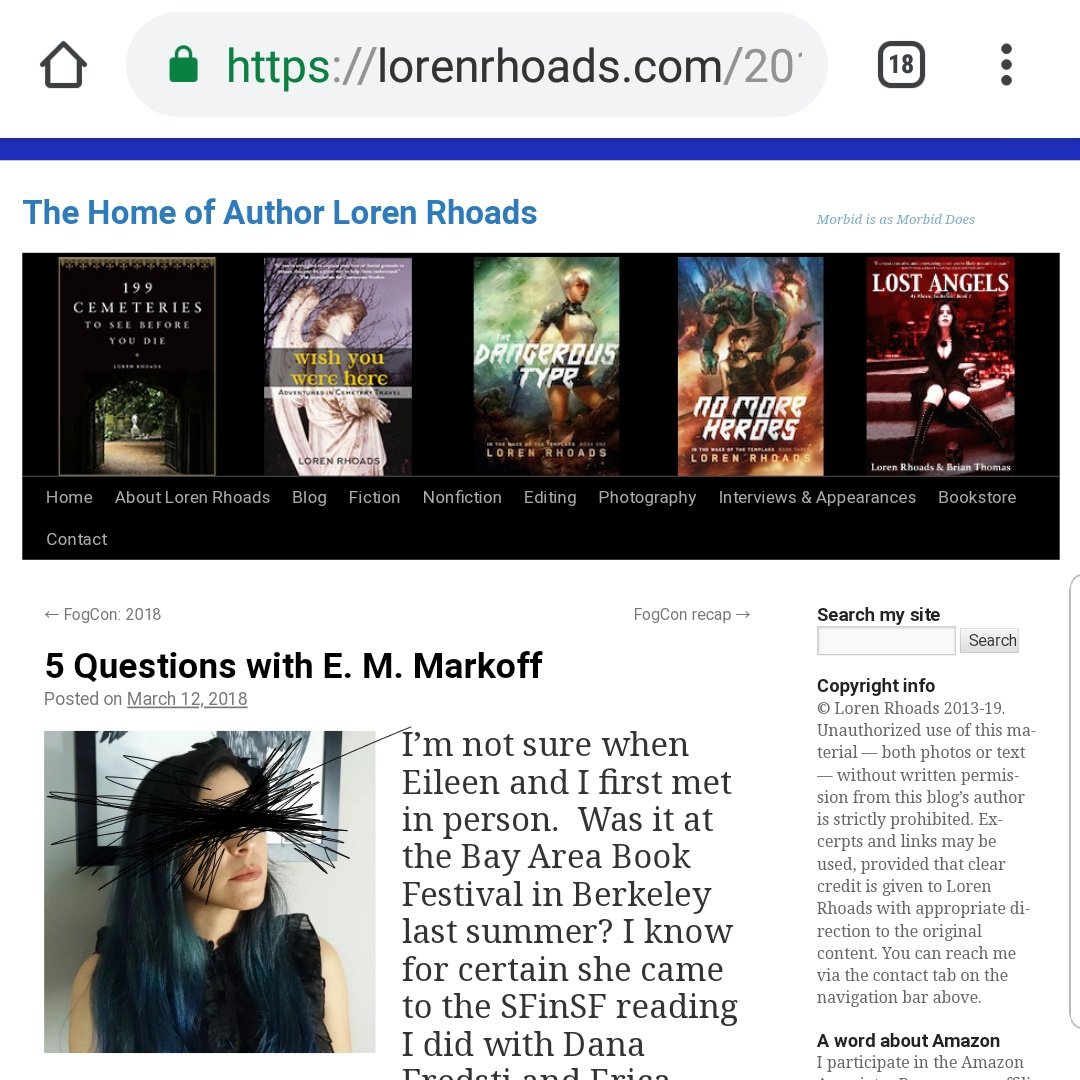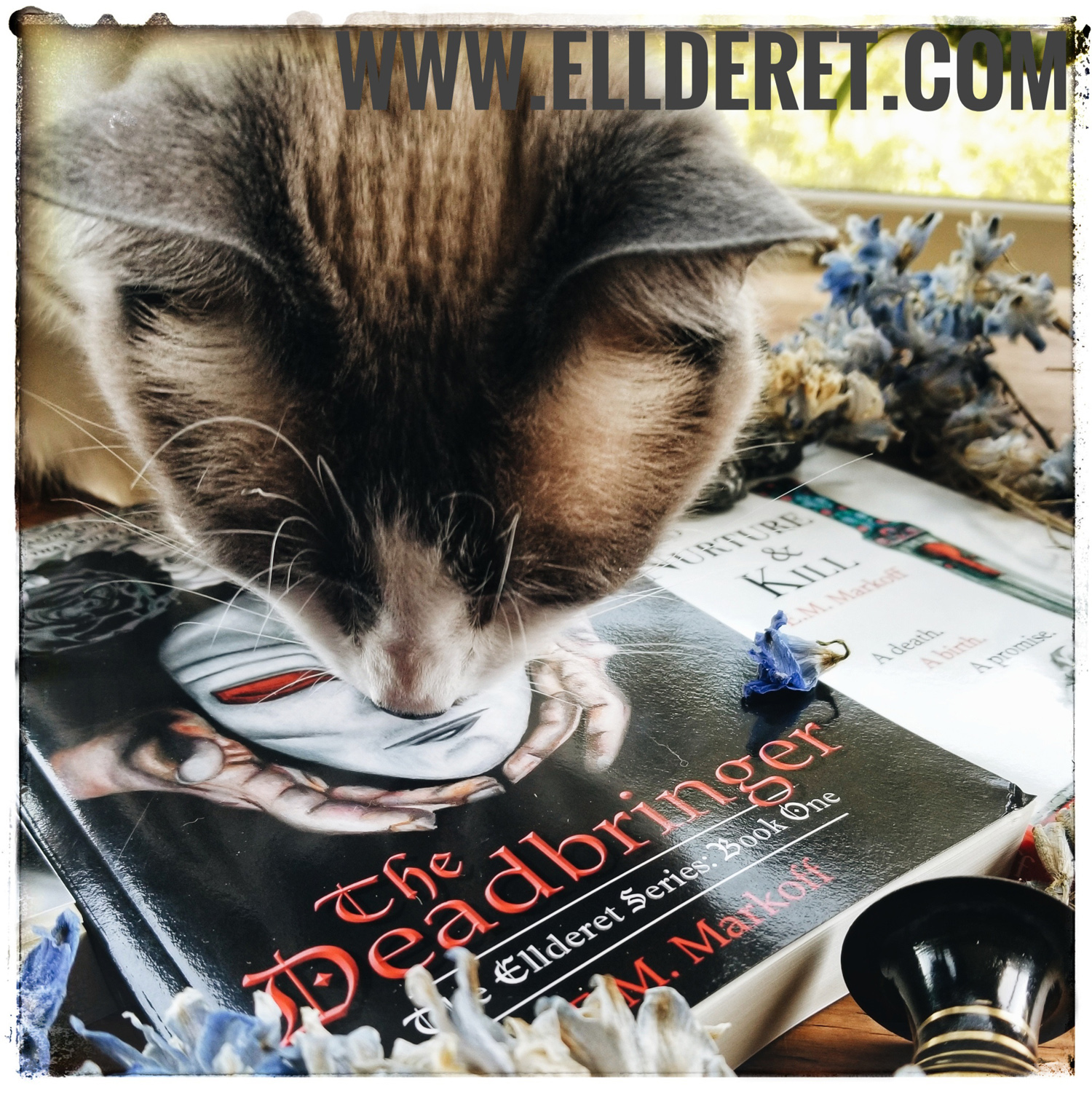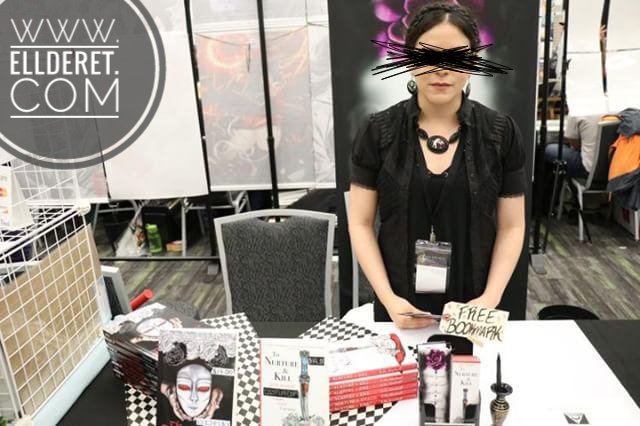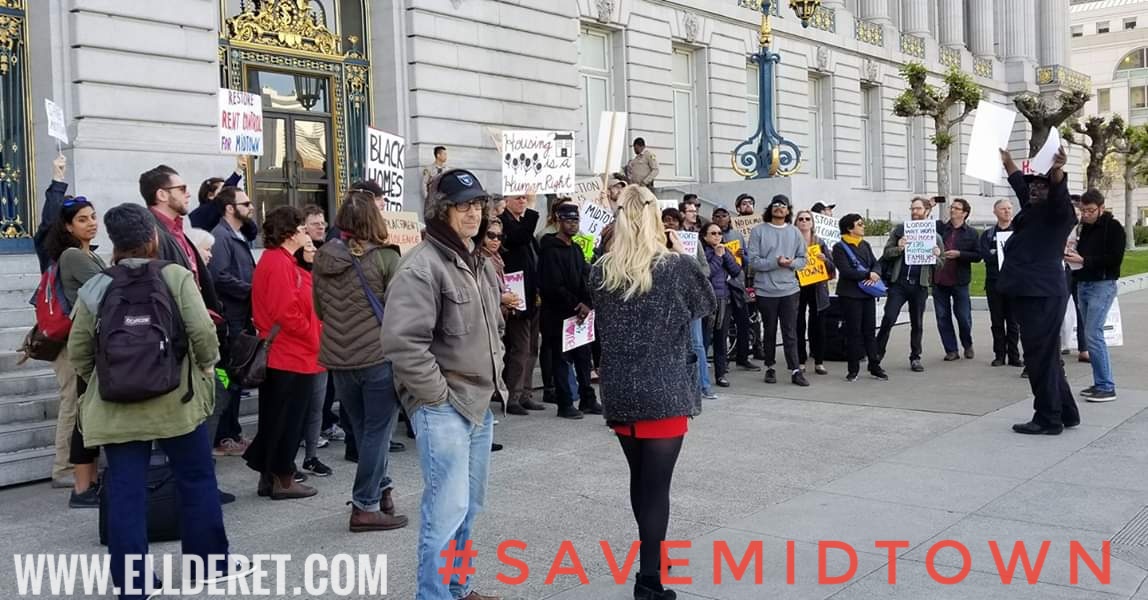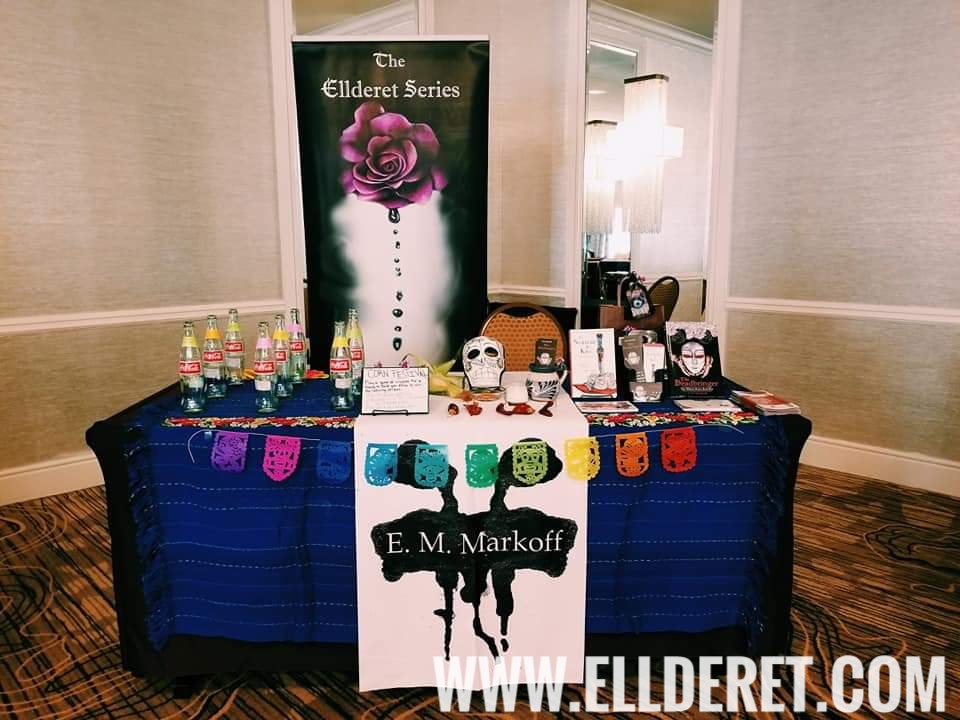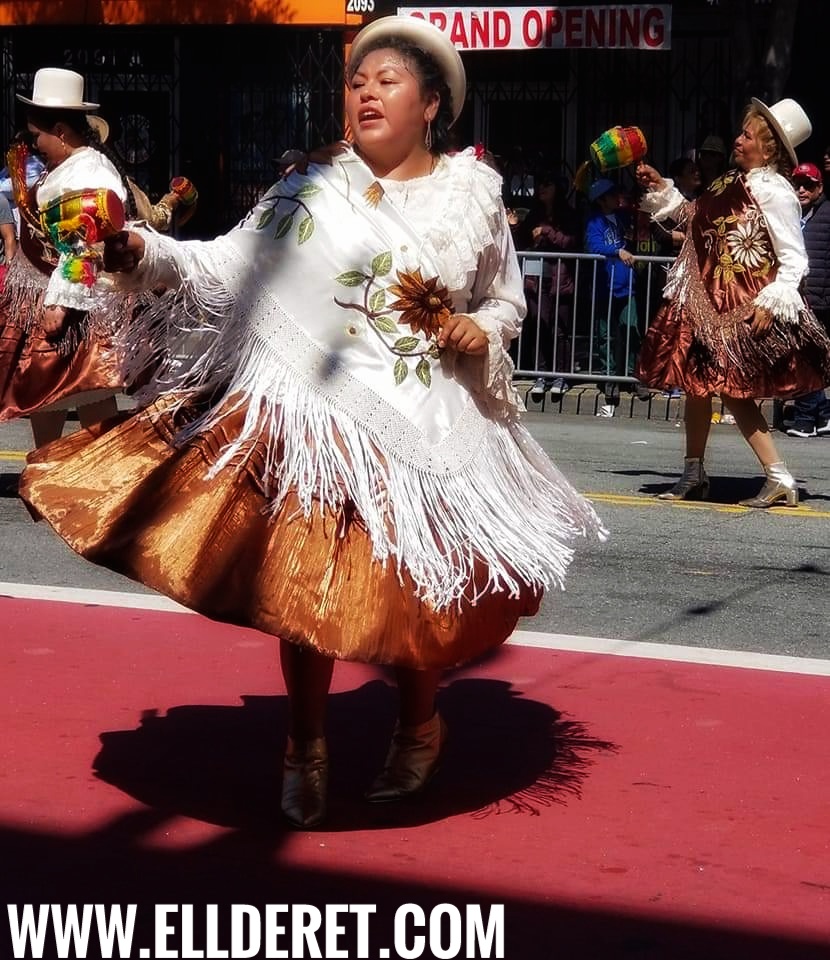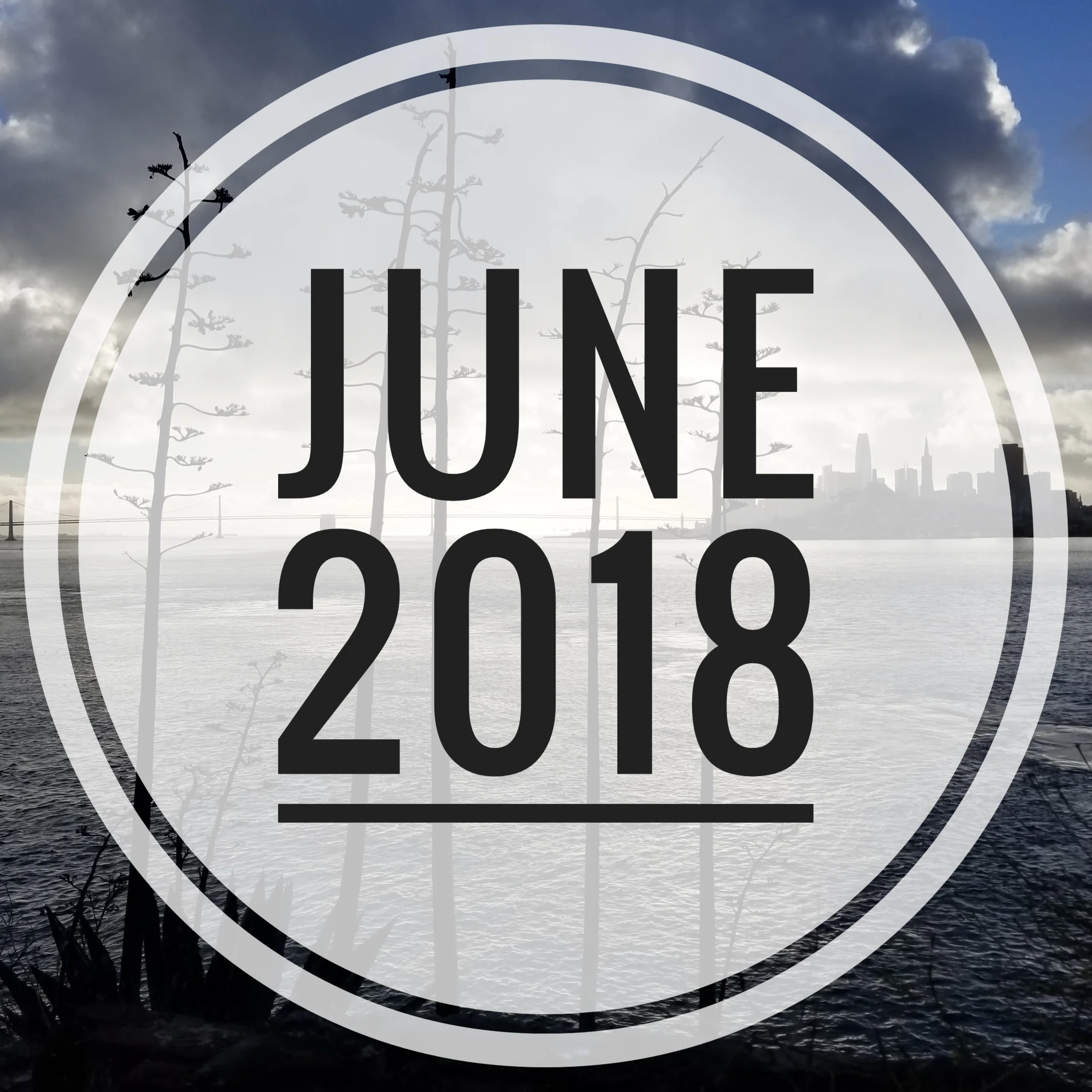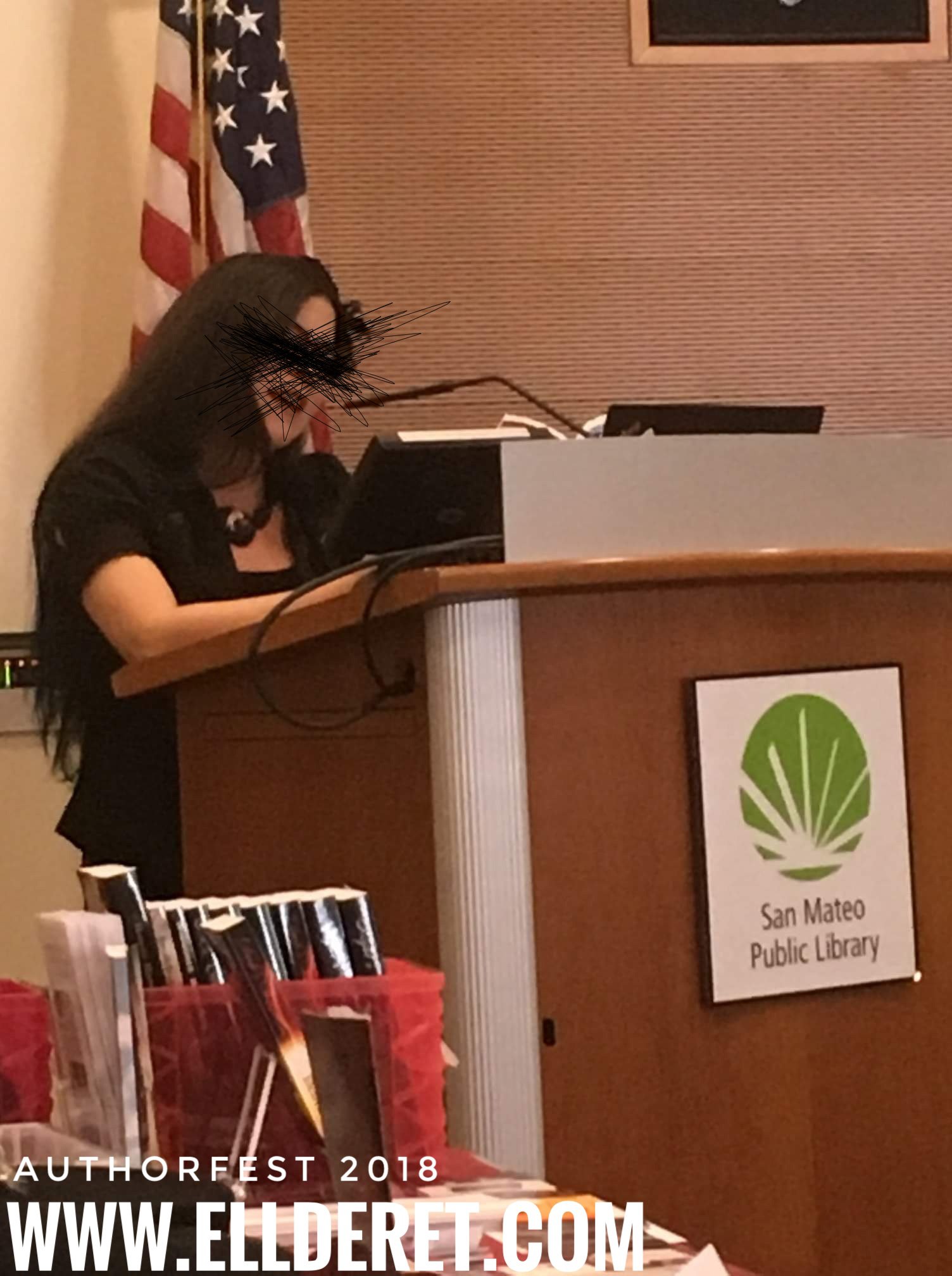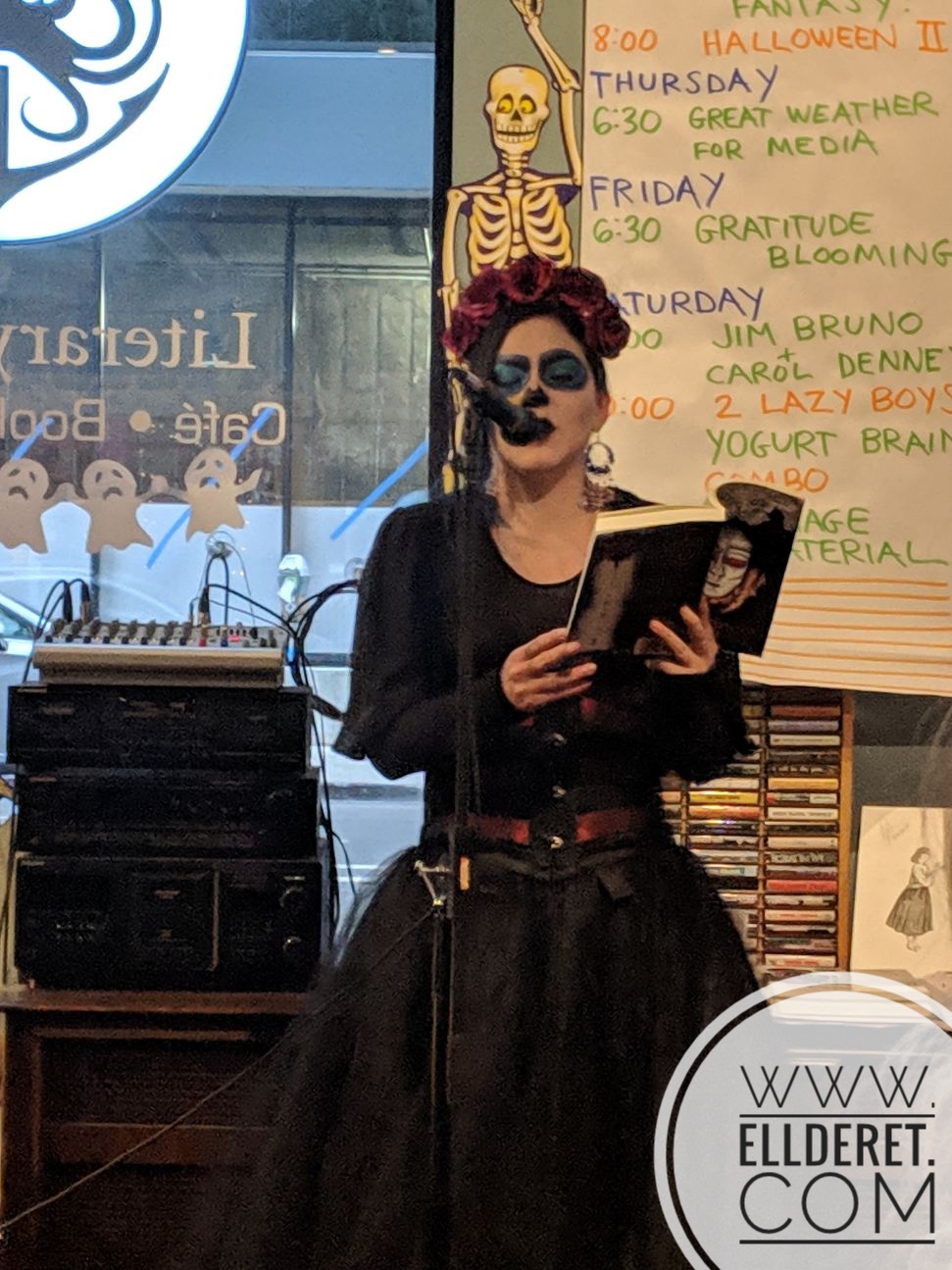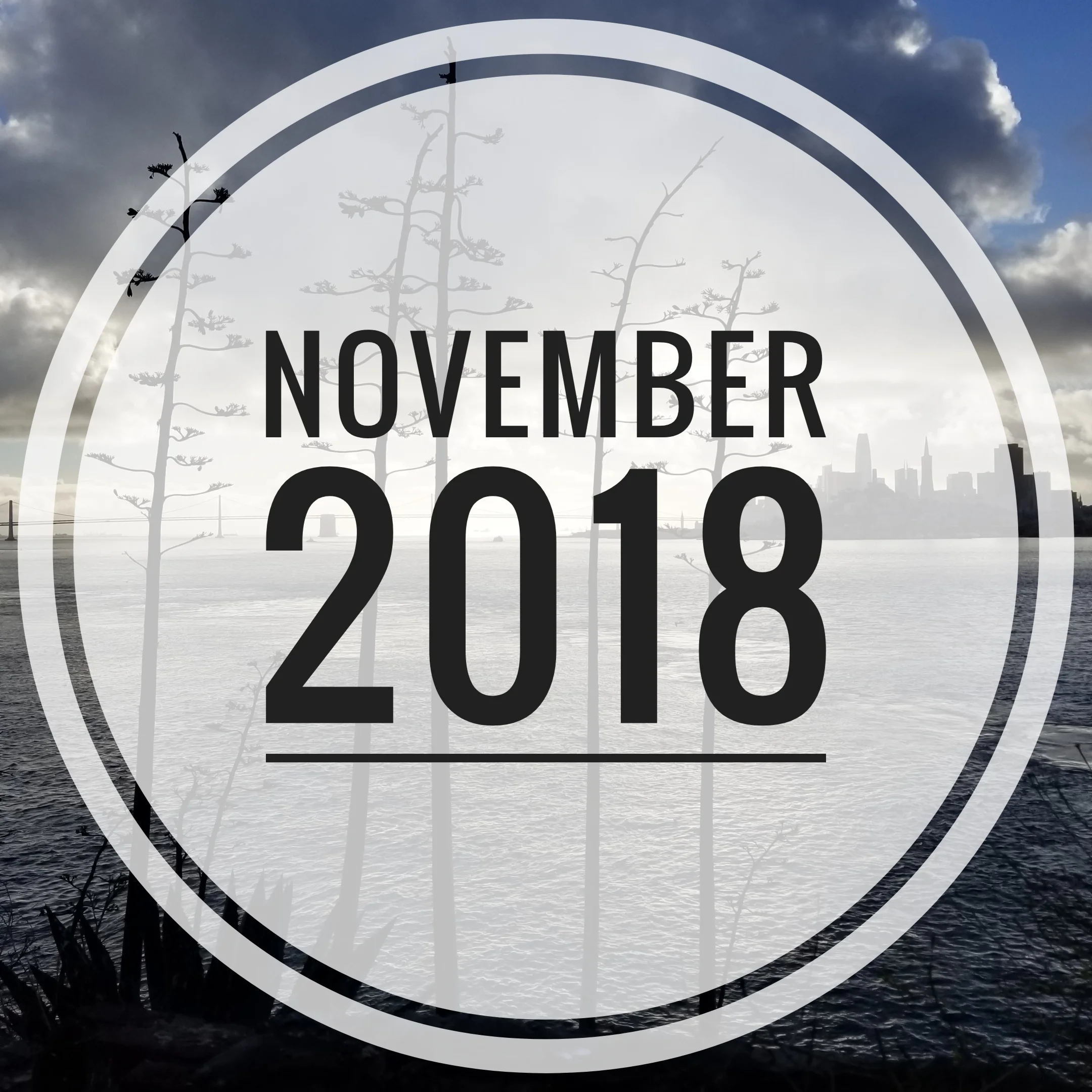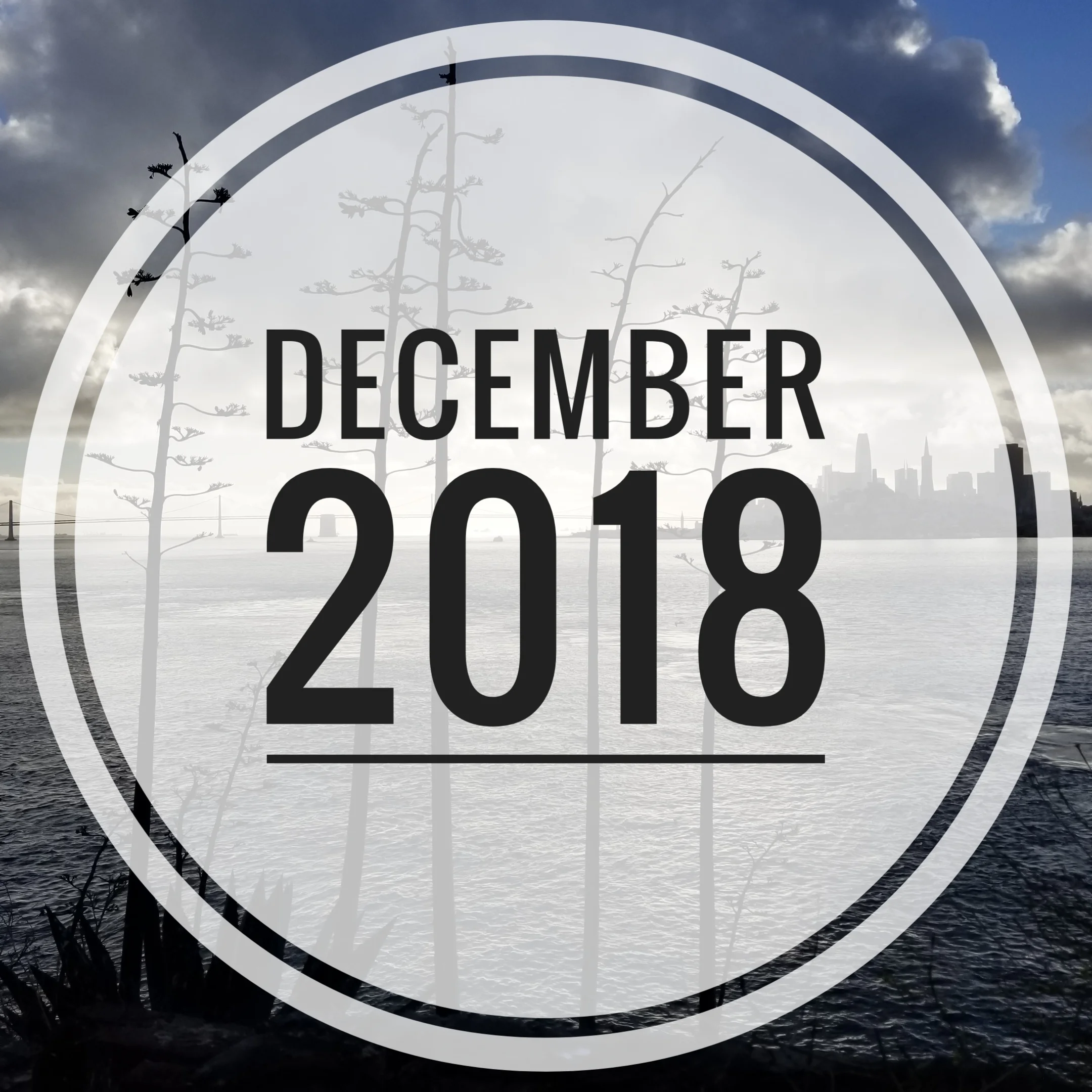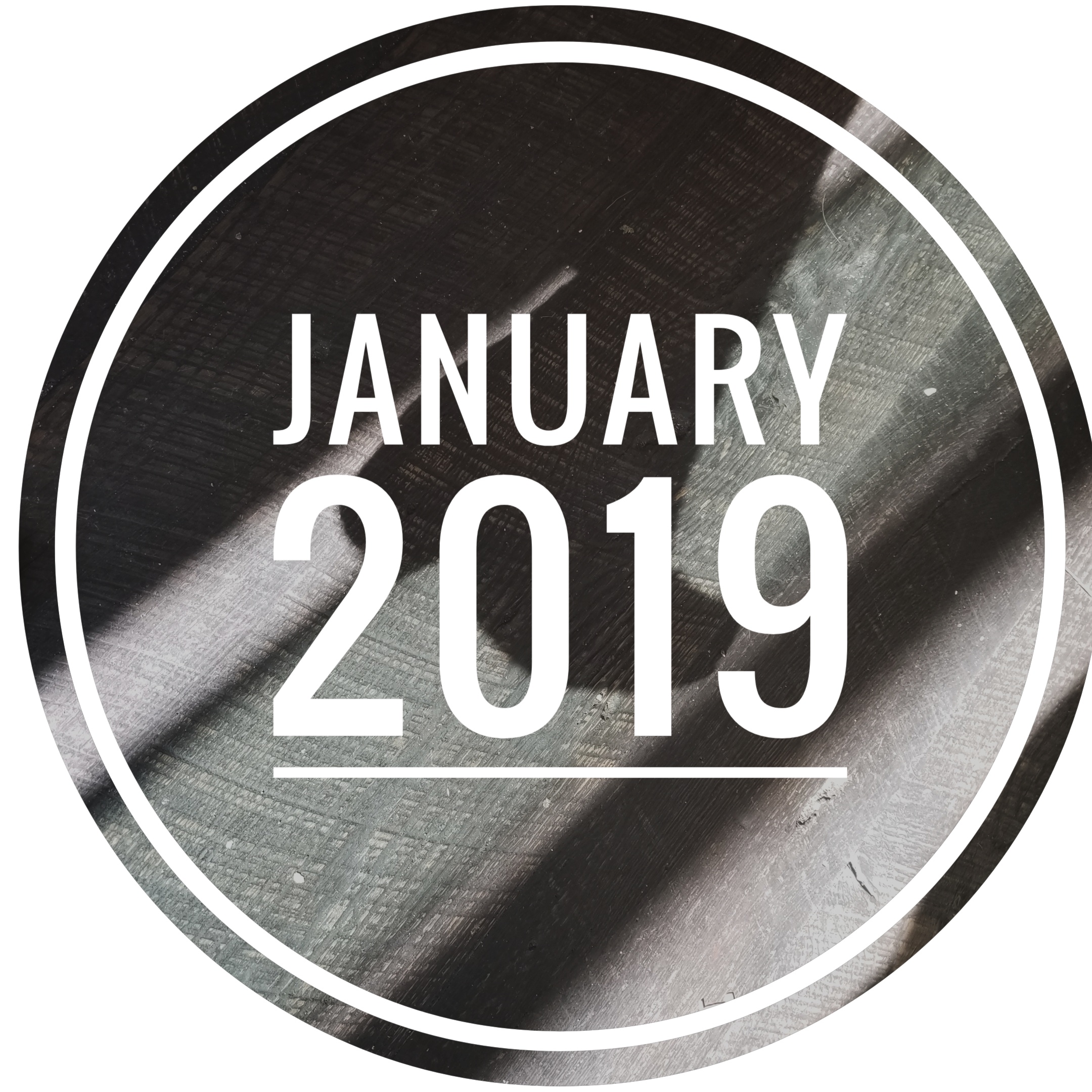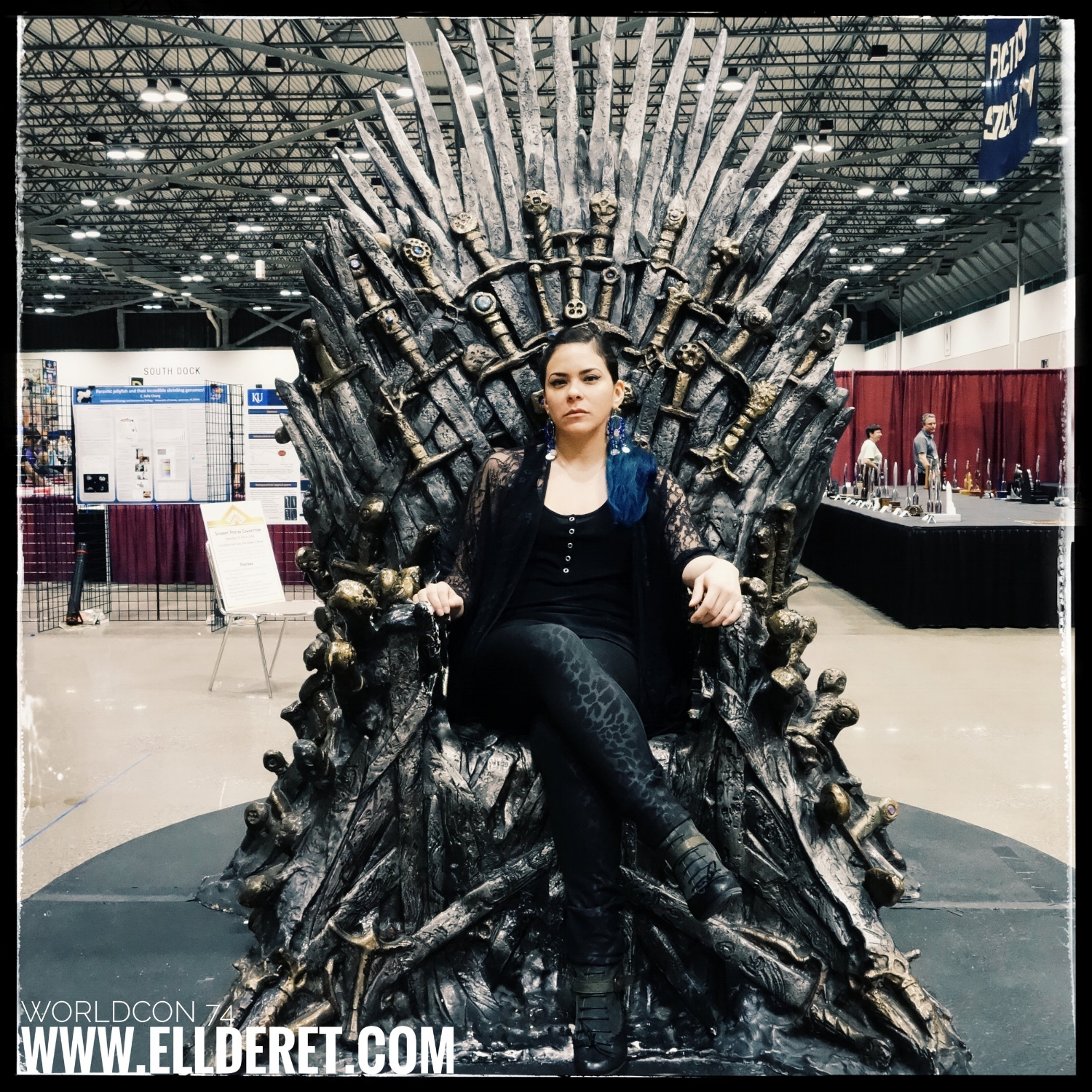Happy 30th Anniversary Twin Peaks! Or, My Non-English Speaking Mom's Love of Surrealism
Lately I've been thinking a lot about why my mom enjoyed classic horror and surreal films/TV despite not knowing English. Some of the things she introduced me to included The Twilight Zone--although, she was terrified of Rod Serling because she once dreamt his head was speared onto an antler--Hammer Horror films, the Roger Corman Edgar Allan Poe adaptions, Universal Monsters …
Hello!
It's day 23 of "sheltering in place" in San Francisco. With all the shit that had been going on, it was nice to escape for a bit into a world that has most definitely inspired me: Twin Peaks. Thank you @kyle_maclachlan and @madchenamick!! ☕️🥧Today's the 30th anniversary of the show and David Lynch is one of my favorite directors. Surrealism is a valid way to explore realism, and I feel that Twin Peaks did just that.
Lately I've been thinking a lot about why my mom enjoyed classic horror and surreal films/TV despite not knowing English. Some of the things she introduced me to included The Twilight Zone—although, she was terrified of Rod Serling because she once dreamt his head was speared onto an antler—Hammer Horror films, the Roger Corman Edgar Allan Poe adaptions, Universal Monsters, Dark Shadows (1991 version), and more. Since the hub and I have been on a bit of a classic movies kick, I've come to the conclusion that despite the language barrier, she was able to enjoy these films because they relied on more than dialogue. They relied heavily on body language and atmosphere, facial expressions that clearly conveyed the moment, and sets or imagery that allowed her to truly be a part of that world without needing to understand a single word. And Twin Peaks was one of those such shows. Are you a Twin Peaks or a David Lynch fan? <3
And now for a bookish excerpt:
🎣Catching the Big Fish: Meditation, Consciousness, and Creativity by David Lynch🎣
"I love going into another world, and I love mysteries. So I don't really like to know very much ahead of time. I like the feeling of discovery. I think that's one of the great things about continuing a story: that you can go in, and go deeper and deeper and deeper. You begin to feel the mystery, and things start coming.”
Definitely the way I'm feeling about The Faceless God 💙✍️
Let's all do our best to look out for one another. Stay safe and healthy, everyone🌻
Originally posted on my Instagram @tomesandcoffee 4/8/2020. Minor edits were made to the text for the post. Videos and external links were added.
Feb + March 2020 Bay Area Conventions: Indie Uncon, FogCON, and Oddities & Curiosities Expo
Convention season for me starts this Friday! First up is the San Francisco Indie Uncon, a three day convention dedicated to helping indie authors learn more about the business-side of writing. This will be my first time attending …
Feb 21-23: 2020 San Francisco Indie Uncon
Convention season for me starts this Friday! First up is the San Francisco Indie Uncon, a three day convention dedicated to helping indie authors learn more about the business-side of writing. This will be my first time attending, but what I’m excited about from the con’s description is that it’s supposed to be about indie authors coming together to freely share their knowledge. It’s authors supporting authors instead of “come learn about our paid services.”
You can learn more about the 2020 San Francisco Indie Uncon at https://kellymcclymerbooks.com/san-francisco-indie-uncon/.
March 6-8: FogCON 10
Walnut Creek, CA
2 Panels + 1 Reading
All my books will be available at the Borderlands Bookstore table in the Dealers Room
I’m going to be on two panels at this year’s FogCON, and I will also be reading from my work alongside authors L. S. Johnson, Loren Rhoads, and Sian Jones. I still haven’t decided what to read but, with nearly 16 minutes of reading time, I’m leaning toward an excerpt from The Deadbringer.
The two panels I will be on are (1) Things I Wish I’d Known Earlier: Writing Edition, and (2) Shades of Fear: Color in Horror.
For more detailed information about the panels head on over to my events page.
Oddities & Curiosities Expo
San Mateo Event Center | San Mateo, CA
All my books will be available for purchase
Prints by The Ellderet Series cover artist, Pink Pigeon Studio, will be available for purchase
I will be joining Loren Rhoads (199 Cemeteries to See Before You Die) and L.S. Johnson (Rare Birds)
As the title suggests, this is a convention celebrating all things dark <3 This will be my first time at this convention - exciting!
Mexica New Year 2020: The Year of Chicyei (8) Tecpatl (Flint)
Mexica New Year is nearly here, and I will FINALLY be able to attend the celebrations in San Jose, CA! Unfortunately, the past two new years (Chicoace Tochtli/6 Rabbit and Chicome Acatl/7 Reed), FogCON have fallen on the same weekend as the celebrations …
3/11/2020 NOTE: Mexica New Year in San Jose has been canceled to help prevent the spread of the coronavirus. Read the official organizer statement.
Photo Credit | https://www.aztecadancers.com/
Mexica New Year is nearly here, and I will FINALLY be able to attend the celebrations in San Jose, CA! Unfortunately, the past two new years (Chicoace Tochtli/6 Rabbit and Chicome Acatl/7 Reed), FogCON has fallen on the same weekend as the celebrations. Calpulli Tonalehqueh’s celebrations are held in San Jose while FogCON is in Walnut Creek … not an easy trek. Also, did I mention I got sick just in time for last year’s FogCON?
Thankfully, because I live in a city with a strong Latinx culture that is proud of its indigenous roots and celebrates it to the fullest, I was able to attend Mexica New Year 7-Acatl in San Francisco. I am talking about the Mission, of course. Sadly, because of ongoing gentrification, communities of color and local shops are being pushed out of the neighborhood and city.
“Latin culture is part of San Francisco culture,” says [Silvia Ferrusquia]. “When we go, the Mission is not the Mission anymore. If everyone goes, it’s just one more city in the whole U.S. — and it’s boring. Who cares about San Francisco if it’s not San Francisco?”
Photo Credit | https://bit.ly/2wqs5KZ
Not only did I attend, but I was fortunate enough to help set up the altar alongside so many others. I learned a lot that day. These spaces and celebrations exist in San Francisco because of the Latinx community. Without them, there would not be a 13th Annual Mexica New Year in San Francisco.
I’m looking forward to celebrating 8-Tecpatl in San Francisco on March 11 and in San Jose on March 14-15 💙
Halloween in Christmas: Podcasting and Quilting Pumpkins with HorrorAddicts.net
Lo! Christmas is nigh. And thus I bring a bit of October back with a podcast glorifying all things dark, including a quilted pumpkin project. To everyone driving for the holiday season, stay safe! Back in October, I was invited by HorrorAddicts.net to be a guest on their podcast’s season finale.
Lo! Christmas is nigh. And thus I bring a bit of October back with a podcast glorifying all things dark, including a quilted pumpkin project. To everyone driving for the holiday season, stay safe!
Back in October, I was invited by HorrorAddicts.net to be a guest on their podcast’s season finale. I was super excited to be a part of the project and thankful that I could help out. This marked the fourth time I’ve appeared on a podcast or broadcast, but the first time I’ve been able to see the podcaster at work. Previously, I was a guest on Unreliable Narrators via Skype, did a live reading of “Leaving the #9” at SF in SF, appeared on FCC Free Radio (FFR) alongside Tales for the Camp Fire: A Charity Anthology editor Loren Rhoads.
But of course, anxiety decided to rear its ugly head.
Participating in the HorrorAddicts.net podcast episode as it was being recorded was a very insightful experience. I got to see the podcaster (Emerian Rich) at work directing, narrating, planning, troubleshooting, stabbing repeatedly at a craft pumpkin, sound checking, checking on her crew between takes, etc. The number of moving pieces was way more than I had ever expected, and I only saw one part of a very large beast … mind blown. Mad respect to all the podcasters out there!
The number one thing that stood out to me about podcasting is how forgiving it seemed to be. Stumble on a word? Say something you wish had not left your pie hole? No problem: re-record and edit. There had been no such accommodation on the live radio show, which was also a great experience, but different (I now have the cutest lucha libre rubber duck courtesy of FFR’s host)!
The other difference with podcasting was being able to see the questions ahead of time, although even then my mind blanked. While talking about favorite cursed places with Emerian and crew, I forgot to mention one of my favorite YouTubers who explores abandoned places: Exploring with Josh. It’s like knowing what books you want and forgetting them all the moment you step into the bookstore!
During the podcast, we talked horror movies, gothic music, and upcoming dark literature releases, and that was just in the segment I was part of! Afterward, we somehow wandered into the topic of hats, and I learned something new about my friend: she makes tea hats. The Craft(ing) is strong with Emerian. Not so much with me. Need a button or patch sown? I gotcha. Need that hemline raised? That’s what safety pins and staples are for 🙃.
To date, my quilted pumpkin remains unfinished, its iridescent green bottom naked for all to see. Mind you, it’s not for lack of supplies, as my friend was kind enough to send me away with the necessary accoutrements. One day, Little Pumpkin, I will finishing driving pins into your artificial flesh. One day.
Safe travels and best wishes to everyone, during this holiday season and always.
Until next we meet,
EMM
Check out podcast Episode 176 and how to make your own quilted pumpkin.
3rd Annual Tales of Horror at the San Mateo Public Library
This Wednesday, 10/2, at 7pm-8:30pm, I will be at the 3rd Annual Tales of Horror at the San Mateo Public Library. I had quite a lovely time at the 2nd Annual Tales of Horror …
This Wednesday, 10/2, at 7pm-8:30pm, I will be at the 3rd Annual Tales of Horror at the San Mateo Public Library. I had quite a lovely time at the 2nd Annual Tales of Horror and am looking forward to reading to the public once again! Last year’s event was a lot of fun with authors dressing up in costumes and reading excerpts from their books. I’m hoping to dress up again this year, but lately the Kleenex box has been my best friend. Maybe I can be a catrina with a head cold. lnstead of a crown of roses in my hair, maybe I should consider a crown of tissues, lol!
I’ll have a limited number of copies of “Leaving the #9,” The Deadbringer, and To Nurture & Kill on hand for sale. And since you’ll be buying direct from me, all purchases will include a free limited edition Ellderet bookmark (while supplies last). If you’re one of my Newsletter of the Cursed subscribers, you know all about the trials and tribulations behind these bookmarks. If you’re not subscribed, please consider becoming one of The Damned. The Faceless God will most certainly be getting its own limited edition bookmark, and I would like to ask my newsletter subscribers to help me choose the design.
The Damned strike a pose
Authors from left to right: Loren Rhoads, Mercy Hollow, EM Markoff, Emerian Rich
So yeah, if you’re looking for a night of spooky stories read by costumed authors dressed to impress, then the 3rd Annual Tales of Horror is for you! Many thanks to the San Mateo Public Library for hosting the event (#supportlocallibraries) and to HorrorAddicts.net for organizing.
The following authors will also be reading at the event: Emerian Rich, Jonathan Fortin, J. Malcolm Stewart, Trinity Adler, Loren Rhoads, Laurel Anne Hill, Ben Monroe, R.L. Merrill, Mercy Hollow, and Sumiko Saulson.
2019 Upcoming Events:
10/2/19: Tales of Horror | San Mateo Library | San Mateo, CA | Free | Reading
10/11/19: Stephen Chbosky with E.M. Markoff | Kepler’s Literary Foundation | Menlo Park, CA | 7:30pm - 9pm | Buy tickets
10/19/19: Lit Crawl | Dalva | San Francisco, CA | Free | Reading
My Experience Growing Up Bilingual and How That Informs The Pronunciation of Names in my Books
This post is spoiler free. This post is indebted to a long-time Ellderet reader who stopped by my booth at SVCC 2019 to ask how to pronounce certain names from The Deadbringer. He told me the way he pronounced them, and I told him the way I pronounced them …
Part 1:
In which statements are made, but first . . .
This post is spoiler free. Here only for the pronunciation? I gotcha. Scroll down to Part 2 and Fortune be with you. But if you want to get a clear sense where my pronunciations come from and why I have some names pronounced two different ways, then read on.
This post is indebted to a long-time Ellderet reader who stopped by my booth at SVCC 2019 to ask how to pronounce certain names from The Deadbringer. He told me the way he pronounced them, and I told him the way I pronounced them. This conversation prompted me to ask him if a glossary on pronunciation would be a welcome addition to The Faceless God. I can’t recall the exact words he used in response, but he did say that a glossary or something that explained “however you say the names, even if it’s made up” would be welcome.
This got me thinking how I—as someone who grew up speaking and consuming both English and Spanish—approached names in fantasy books. I realized that more often than not that I say the names of characters, places, cities, etc. with a Spanish pronunciation, especially if the spelling lends itself to it. This feels natural to me. Is this my subconscious way of inserting my culture into my everyday narrative so I can see myself represented? Possibly — I do want to see myself in the world around me and in the fantasy stories I read. All those fantasy names with lots of r’s? You can bet I was rolling the r’s in Perrin Aybara’s name.
As for the world of the Ellderet, the way I approach pronunciation is rooted in my experiences as a first generation bilingual Latinx. That is, I often pronounce the names in two different ways, as if reading them in both English and Spanish. Let’s use the name “Judas” as an example. In English, the word has a hard “J” sound (“joo-dus”), while in Spanish the “J” sounds more like an “H” as in “hoo-dahs.” (As you can no doubt tell, I don’t know shit about linguistics.) In my own personal experience, it wasn’t uncommon for me to hear bilingual speakers pronounce their name or a word (like “guacamole”) in both English and Spanish, and to switch back and forth between the two pronunciations in everyday conversation (Spanglish!).
Circling back to the name Judas, if it were my own name, would I prefer being addressed with one pronunciation over the other? It depends. It’s the individual who dictates how their name is pronounced, not everyone else around them. Data from Star Trek: The Next Generation most certainly had a preference, made it known, and asked others to respect his preferred pronunciation. There may be a character in the world of the Ellderet who shares Data’s views. Feel free to take a guess who it is 🙃
Commander Data explains the proper pronunciation of his name.
I most likely did a terrible job explaining myself but, as I mentioned before, I’d never given this topic much thought. For me, switching back and forth between languages, especially when I’m speaking with someone else who grew up speaking both English and Spanish, is normal. Being bilingual is a part of my everyday life and has no doubt found its way into my writing. #OwnVoices, y’all.
Part 2:
Finally, the pronunciation!
One last thing before I show off my amazing phonetic skills . . . Dear reader, say the names how they feel the most natural to you. But, if you want to know how I say them—how the characters refer to themselves in my head—then prepare to enter the madness I warned you about!
The Ellderet Cast
Kira Vidal (Kee-rah or Keer-uh Vee-dahl)
*Eutau Vidal (Oo-tow Vee-dahl)
Elia (Ee-lee-ah)
Sal Zem (Sahl Sem)
Kim Lafont (umm, Kim. Luh-fahnt)
Teemo-Na’dissima Rey de’Es (Tee-mow Nah-dee-see-mah)
J’kara (Jay-kah-ra or Jah-kah-ra)
Lyse (Leez)
Daemeon (Day-mee-on)
Natsu’es (Naht-soo-ess)
Huas-lan (Whas-lahn)
Telera (Te-le-rah)
E’sinea (Eh-see-nee-a or Ee-sin-ay-ah)
Amonos (Ah-mo-nohs)
Marya Herzmmen (Mar-yah Hers-men)
Kristoff Herzmmen (Kris-toff Hers-men)
Ga’jona (Gah-jo-nuh)
Sa (Sah)
Lauchitl (Lau-che-tle)
Adan (Ah-dahn)
*Eutau. It’s Oo-tow, but “tow” as in “ow!” not “I need to tow my car.” :)
The cities and towns of Moenda
Opulancae (Op-you-len-say)
Suelosa (Swey-low-sah or Sue-los-ah)
Rhaemond (Ray-mond)
Xulmé (Shul-meh)
Ilvra (Eel-vrah)
Kessrennt (Kess-rent)
Jané (Ha-neh or Juh-nay)
Ayotil (Ah-yo-teel)
Nhaleri (Nah-le-re)
Florinia (Flo-ree-neeh-ah or Flor-in-ee-uh)
Ulivi (Oo-le-ve)
It may seem strange that I have multiple pronunciations for the same words, but that’s what growing up bilingual is all about.
How would you pronounce these words? 🤔
Until next we meet,
EMM 🥀
2019 Upcoming Events:
10/2/19: Tales of Horror | San Mateo Library | San Mateo, CA | Free | Reading
10/11/19: Stephen Chbosky with E.M. Markoff | Kepler’s Literary Foundation | Menlo Park, CA | 7:30pm - 9pm | Buy tickets
10/19/19: Lit Crawl | Dalva | San Francisco, CA | Free | Reading
#Writerslife 2018 Year In Review
Happy New Year 2019, everyone! “Que salga lo viejo y entra lo nuevo,” or “Out with old, in with the new.” I welcomed 2018 with those words, and with a pot of water tossed out the front door. I met many wonderful authors and artists in 2018 …
Happy New Year 2019, everyone!
“Que salga lo viejo y entra lo nuevo,” or “Out with the old, in with the new.” I welcomed 2018 with those words, and with a pot of water tossed out the front door. I met many wonderful authors and artists in 2018.
Here’s my #writerslife 2018 year in review. If you want to get the full story behind the pictures, click on the image and hover over them. For mobile: tap the small white dot on the bottom right of your screen to enable the text.
Indie Publishing, Death in Mexican Culture, The World Of The Ellderet | Unreliable Narrators Podcast
Welcome back! Today, I want to share a podcast interview I did with the wonderful folks over at Unreliable Narrators, a few of whom I had the opportunity to meet at Fogcon 8. They asked some great questions that touched upon the premise behind The Ellderet Series, my literary influences, the pluses and minuses of being an indie author, the very important role my culture plays in my works, and if I have ever been stereotyped because I am a woman. Spoiler: yes.
Welcome back! Today, I want to share a podcast interview I did with the wonderful folks over at Unreliable Narrators, a few of whom I had the opportunity to meet at Fogcon 8. They asked some great questions that touched upon the premise behind The Ellderet Series, my literary influences, the pluses and minuses of being an indie author, the very important role my culture plays in my works, and if I have ever been stereotyped because I am a woman. Spoiler: yes.
We also talked about Roger Corman’s The Pit and The Pendulum, the various Dracula films from Hammer Horror, The Assistant (my cat), the Horror Writers Association, and my thoughts about the Next Generation Indie Book Awards. Please check out the interview :)
One more thing! I got behind on finishing up my blog series on Worldcon 76, but I’m still planning to get that done soon. It’ll probably be more like a goodies wrap-up, because I realized that I already said everything I wanted to say in my own right in the last three blog posts I did on Worldcon. Check those out here!
Worldcon 76: The Personal Responsibility Of Being On A Panel That Addresses Imposter Syndrome & Mental Health
At Worldcon 76, I was fortunate to be a speaker on a panel addressing imposter syndrome. The panel was excellently moderated and touched on a number of points that people with imposter syndrome can use to move forward. Some of the techniques discussed to help "make it to the end credits" included using writing as a cathartic release, viewing your insecurities as monsters that you can conquer, #buildaladder by adding rungs - no matter how small - to help you climb out of your darkness, learn to say "thank you" and to accept praise, or to reward yourself with something positive, like "cake".
Welcome to my "Worldcon 76" series, where I'll be breaking down my time at the world's longest-running science fiction and fantasy convention.
Caveat: I am not a medical professional. What I'm going to talk about reflects my personal experiences and observations.
---------------------
At Worldcon 76, I was fortunate to be a speaker on a panel addressing imposter syndrome. Here's the description of the panel:
IMPOSTER SYNDROME: YOU DO DESERVE TO BE HERE
Imposter syndrome can often feel like being a side character in a horror movie: you know the monster is gonna get you, but you don't know when. Many authors--from just starting out to long-time pros--experience imposter syndrome, especially people who are marginalized. We wonder if we "really" belong; we wonder if everyone else knows we're faking-it-til-making-it; but when will someone call our bluff? Imposter syndrome is common and we can continue our work despite the doubts. So, how do we deal with it? What techniques do you employ to make it to the end credits?
The panel was excellently moderated and touched on a number of points that people with imposter syndrome can use to move forward. Some of the techniques discussed to help "make it to the end credits" included using writing as a cathartic release, viewing your insecurities as monsters that you can conquer, #buildaladder by adding rungs - no matter how small - to help you climb out of your darkness, learn to say "thank you" and to accept praise, or to reward yourself with something positive, like "cake".
Another great bit of advice related to how one can approach writing their own biography. Singing your own praises can be hard, and it can sometimes lead to a downward spiral of depression as you question each accomplishment and wonder if it was a fluke. So instead, try pretending that you are writing about someone else. Sounds pretty straightforward and obvious, but imposter syndrome is many things but logical.
However, there were also some negative comments made about imposter syndrome and mental health that came up during the panel that I called out and which I'd like to respond at more length. Before I continue, I ask that you please look over the panel description once more. To me, I feel like the description is not worded in a way to suggest an academic mental exercise of what imposter syndrome is; rather, it described a safe space where people can go to realize that they are not alone and that they DO indeed belong.
Yes, I realize that a panel is not a support group, but to me, it is inappropriate to dismiss the very real suffering of mental health by telling callous anecdotes, even if you mean well. You're not helping. On the contrary, you very well may be making things worse. So here are a few points that I think people need to keep in mind when discussing sensitive topics relating to mental health.
Do not assume that if someone FAILS TO seek treatment it means They enjoy feeling that way
In America's awful system, people don't have a right to healthcare. And even when you do have healthcare, it can sometimes take weeks to see a doctor and the "out-of-pocket cost for care is often too high for this to be a realistic option for most consumers." That brings me to my next point: Privilege. Not everyone can afford to pick up the bill for whatever costs the insurance decides not to pay, or to buy their medication without the very real risk of not having enough money for tomorrow. This is not the fault of the individual; this is the fault of a system that deems that in order to receive healthcare you must be able to pay for it and then some. The bottom line is that everyone needs to remember that not all people "have equal care to treatment and service."
Everyone experiences mental health differently
Just because you were able to "get over it" does not excuse you from telling someone suffering from mental health to "get over it" as well. I've got mad respect for you if you managed to come out on top and never look back, but in your journey to become that stronger you, do not erase or superimpose your experiences on others. It can do more harm than good because there is not a "one-size-fits-all cure" for mental health. The best way to help is to be supportive and to know your own limits as the person giving the support.
Do not mistake support with Attention seeking
I'll give a personal example. As the clock ticked closer to panel time, I started to question if I had the right to be a speaker. Ironic, really, but not surprising, though I had hoped I would be able to at least keep from being paralyzed. Nope. Sometimes I can pull myself out of these moments, sometimes I can't. That afternoon was a huge "can't," so I turned to my support: the hub.
The hub could have easily told me I was overreacting (because I started to cry) and that everything would be fine and to just get over it, but he didn't. He chose to be that support, to be empathetic, and that empathy is what kept me from caving in.
Do Not generalize mental health with jerks
The heart of the issue that came up during the panel was the question of when does support become extortion. It's a very valid question, but not one that should be answered with the broad generalization that anyone not seeking professional help is just an attention seeker. That type of response is not helpful and can feed the negative stigma associated with mental health.
My response: Do not confuse toxic friendships and relationships with someone suffering from mental illness. I know this is easier said than done, but I really feel like this piece by Miss Misery breaks down the difference between someone just needing extra support and jerks:
The dilemma, in my mind, boils down to this: when you’re ill, the minimum amount of help you need may be more than the maximum amount your loved ones can give. Are you a jerk for asking for that help?
I think the answer to these questions is definitely no, it doesn’t make you a jerk just to ask for extra sympathy and attention where your mental illness is concerned. However, to avoid being inconsiderate or thoughtless, one key condition must be met: you must make an honest and genuine effort to minimize how much you take from your caregivers. A sick person demands patience; a sick person who’s also a jerk demands unnecessary patience. For example, someone who has been conditioned that their caregivers will get them anything they want and abuses that privilege is probably behaving like a jerk.
The key concept that separates jerks from the truly needy, then, is lack of consideration for the person in the support role. For example, when a mentally unsteady person frequently needs to talk to a family member about their problems, they’re just doing what they have to in order to survive. That doesn’t make them a jerk; it’s just an unfortunate circumstance wherein someone has to suffer.
Being someone's support, or caregiver, is not a glamorous job. There's a reason I have thanked my hub in my books as the person who "spends time with me in the abyss." If you struggle with understanding the difference between actual jerks and someone just needing extra support in order to survive, then please go read Miss Misery's post: "People With Mental Illness Are Jerks."
Do not contribute to the negative stigma of mental health
A public platform, like a panel at a convention, is a powerful tool to help bring awareness and is not the place to be dismissive or make broad generalizations about mental health. Panelists should not be judgmental and should instead demonstrate understanding and awareness of people's suffering.
This post was supposed to have gone out on Monday, but I found myself struggling with finishing it because, well, imposter syndrome. Blogging, vlogging, and being on a panel (in particular a panel about imposter syndrome) are rungs I have added to my ladder and have helped me own my own voice so I can publicly speak about my struggles. But my dread at writing this piece was also a reminder of why I needed to finish writing it. I'm going to end this post with an open plea, not just to Worldcon but to anyone who attends any convention:
Dear convention-goers and panelists, if you do not feel anything for the topic being discussed (especially one pertaining to mental health) or do not feel you can contribute in an empathetic way, then PLEASE recuse yourself from the panel and let someone else - someone who can contribute positively to the discourse and help dispel stigma - take your place. Thank you.
Sincerely,
E.M. Markoff
Btw, in case you're wondering why I went with pictures of The Assistant to supplement this post, it's because he also plays a very supportive role in my mental health =^_^=
Game of Thrones Artist John Picacio Brings Mexican Representation to WorldCon 76 Through Scholarship Fund
The Mexicanx Initiative was a scholarship fund started by artist John Picacio to bring more Mexicanx representation in science fiction and fantasy to Worldcon 76. The scholarship was awarded to 50 people of Mexican ancestry and, let me tell you, those 50 people made a HUGE impact. The Mexicanx Initiative made Worldcon 76 a powerful experience for me because I got to see myself represented on those panels, in those stories, in the language, the idioms, the anger at the injustices of deportation, criminalization, forced separation and herding of children from their parents, and so much more.
Welcome to my "Worldcon 76" series, where I'll be breaking down my time at the world's longest-running science fiction and fantasy convention.
The Mexicanx Initiative was a scholarship fund started by artist John Picacio to bring more Mexicanx representation in science fiction and fantasy to Worldcon 76. The scholarship was awarded to 50 people of Mexican ancestry and, let me tell you, those 50 people made a HUGE impact.
When I first realized this was a thing, I got both ridiculously excited and worried that the experience would be watered down. Considering who started this initiative, I should have known better than to think watering down would be allowed!
The Mexicanx Initiative made Worldcon 76 a powerful experience for me because I got to see myself represented on those panels, in those stories, in the language, the idioms, the anger at the injustices of deportation, criminalization, forced separation and herding of children from their parents, and so much more. An entire reading and some panels were done solely in Spanish - 100% en español. This might not seem like a big deal, but it is. Just look up the #ownvoices and #weneedmorediversebooks hashtags. I hope this kind of inclusion of other languages and cultures is the beginning of what future Worldcons and other conventions in the genre can be and, frankly, should have been a long time ago.
The American narrative is not everyone's experience.
When Rose Lemberg (yes, I know they are not Mexican, but they are badass) said this, I had to literally restrain myself from jumping out of my seat and cheering "Thank you!!!" This is not an exaggeration. Having been raised by an immigrant mother meant that my experiences growing up did not follow the "American Narrative," and many customs I grew up with are different from those experienced by most people brought up as "American." On New Year's, to name just one example of something that most kids in America don't grow up doing, we would toss a pot of water out the front door at midnight and say "Que salga lo viejo y entra lo nuevo," or "Out with old, in with the new." I have a lot to say about the American Narrative, but that's for another post. Thankfully, FLAMA exists to share my frustration via hilariously on-point sketches.
Often, not being part of the American Narrative has made it difficult for me to connect with people. Now let me be clear: this is not my mother's fault for not "Americanizing" me enough; it is the fault of a society that idealizes and demands that everyone follow a single narrative.
The term "magical realism" is othering
The use of the term "magical realism" has always bothered me, though I could never eloquently pinpoint exactly why. The Mexicanx Initiative panels helped clear this up for me - it's because the term is othering. Let me explain what I mean.
First, from a personal perspective, it is trivializing to declare that elements of my culture are "magic." The customs that I grew up with - whether Día de los Muertos, or warnings about brujería, or carrying an ojo de venado for protection - are part of who I am. Yes, intellectually, I know that these things are based in supernatural beliefs, but slapping the term "magic" on them dismisses them as silly stories, superstitions, a mere ethnic trope.
Second: "You're Mexican, so you must write magical realism, right?" This was an actual question that a reader perusing my artist's alley booth asked me at a convention last year. Yes, I know some argue that magical realism actually has more literary worth than so-called "genre" fantasy, but for me, a female Latinx author who wants to write fantasy novels and be accepted by that community, it hurts to be told what I have to write. And anyway, if so many of the conventions of "traditional" fantasy are themselves derived from European myths and folk tales (just look at Tolkien), why do stories with supernatural elements derived from Mexicanx culture get consigned to magical realism?
Borders divide families and are bullshit. However, borders do exist that keep people safe.
And no I'm not referring to the border dividing Mexico and the United States. That border is bullshit and ICE and CBP can go fuck themselves. I'm referring to the borders within the United States keeping the government from taking away more of what belongs to indigenous peoples. This very important distinction was made by a POC audience member. In my opinion, I don't think this discussion would have had a home at Worldcon had the panel that gave it a platform not come to pass. That panel was "Transgressing Borders."
Secondary worlds are a valid way of exploring one's culture
Hearing this from someone who is not from your culture is not the same as hearing it from someone who is. The latter holds power. As someone who incorporates my culture into the secondary world of the Ellderet, this meant a lot to me.
It's arrogant to assume that the base language spoken in SF/F stories is English just because the books are written in English.
Bravo! Enough said.
An inkling of other things I learned: that the distinction between "hard" and "soft" science fiction isn't a thing in Mexico; that Mexico's sf/f world is alive with a large number of novel ideas because many authors don't feel the need to limit themselves to what's popular; that YA is just beginning to really take off in Mexico; that some editors are negative on using character names sourced from languages that English-speaking audiences might find difficult to pronounce; and that I am not alone in my bilingual language experiences. I already knew this last one, but seeing it reflected on a panel at a convention dedicated to a genre I love - a genre that lacked representation when I was growing up - meant the world to me.
Panel after panel, as I sat in the crowd listening to the speakers, I couldn't help but look around at the other people and then back at the stage and think, "That's me."
"Ahí estoy yo."
Desde lo más profundo de mi corazón, gracias a todos que hicieron posible The Mexicanx Initiative.
